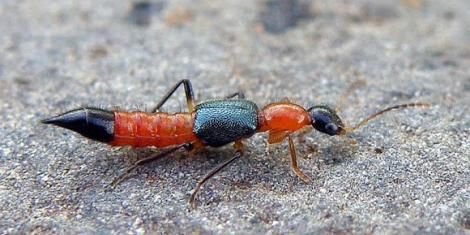
The number of people with skin-related problems has been increasing in Banke as of late. People are suspecting that the problem may have been caused due to Nairobi flies.
Nairobi flies, which are native to East Africa, are also known as Kenyan flies or dragon bugs. They are small, beetle-like insects in orange and black in colour and are usually found in areas with high rainfall and mostly infect children and people with sensitive skin.
People with skin infection suspected to be Nairobi fly have been visiting hospitals in recent days.
According to Dr. RK Jha, dermatologist at Bheri Hospital, 15 people have visited the hospital with skin infection.
“We can’t say what is the cause of the infection, it may or may not be due to the Nairobi fly,” said Dr. Jha.
Nairobi flies are attracted to bright light and moist areas. It is said that these insects kill pests or other insects on farms, which is good for humans.
Nairobi fly infection causes skin problems in the rainy season every year, said Dr. Jha.
According to Dr. Jha, Nairobi flies do not bite or sting. However, if disturbed while sitting on anyone’s body, they release a potent acidic substance. The fluid released by the flies can cause unusual burns, dermatitis on the skin. Pinhead-sized blisters could erupt in 24 to 48 hours filled with a yellowish fluid. But these usually dry out and don’t leave scars, said Dr. Jha.
Doctors have said that the Nairibi flies may have come to India and Nepal because of climate change, but there is no need to panic as other similar insects were found in Nepal before.
In order to stay away from the flies, doctors have suggested closing windows and doors at night, sleeping under mosquito nets, gently brushing off the insect if attached to body; if acid is released, washing the area with soap and water and wearing full-sleeve clothes.
Dhirjung Shah, Chief of District Health Office Banke, said that although it has been heard about the effect of this insect in some places of Banke, no official information has been received yet.
Source : TRN,






